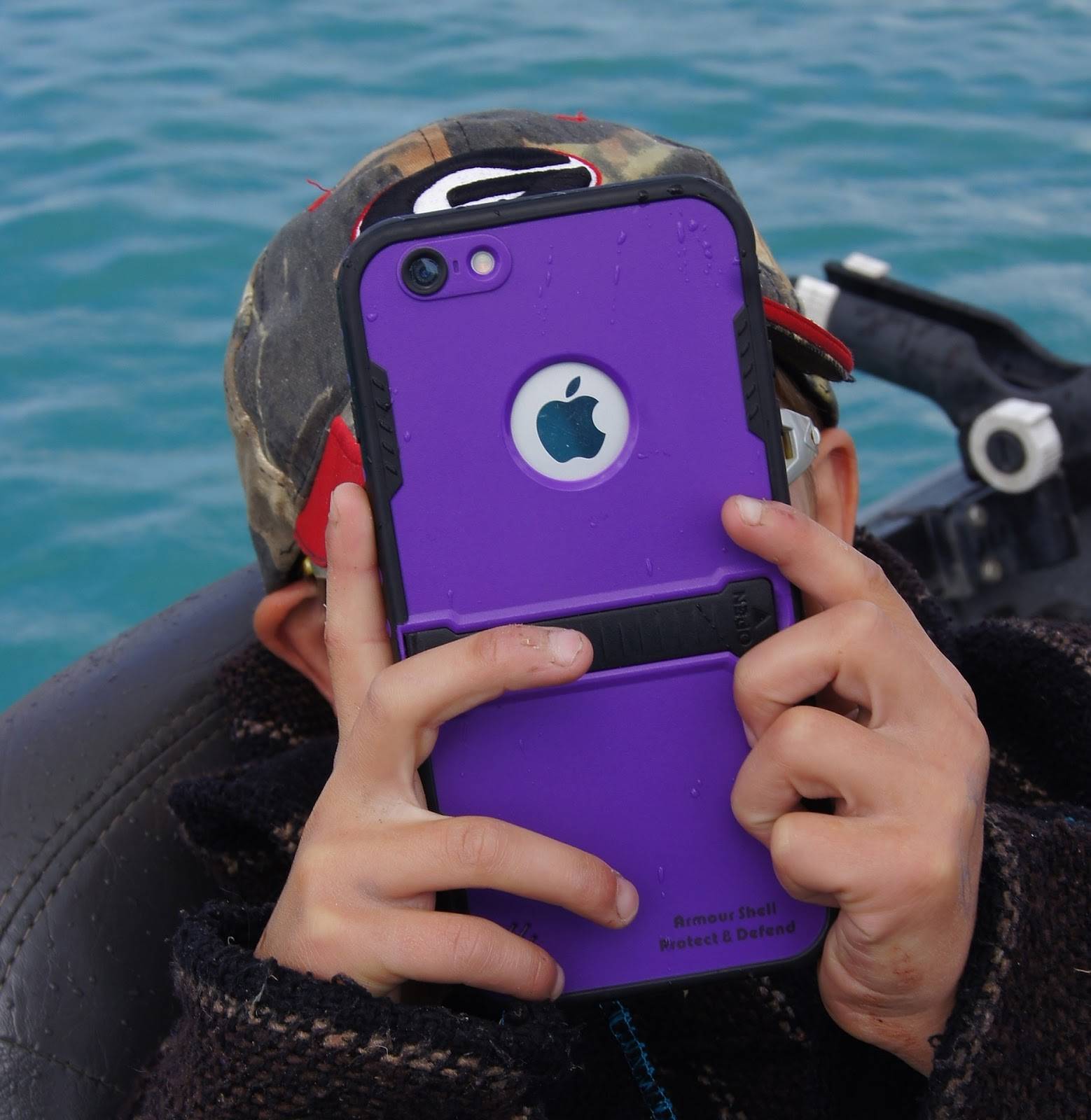This content has been archived. It may no longer be relevant
Pretty much everyone these days has a cell phone, including some people who probably shouldn’t. With the popularity and commonality of cell phones ever increasing, the landline phone is becoming a thing of the past, much like the pager and Walkman over the last few decades. Before you decide to go and ditch your landline phone altogether, there are some factors that you may want to consider to make sure a landline is completely unnecessary.
Does your home lose power frequently?
A landline phone does not require power to function, while a cell phone can last an extended period of time without a charge, it still needs to be refueled using electricity. If you live in a remote location, or somewhere that has bad weather often, a landline may be your best bet in case of an emergency when all cell phone batteries have been drained.
Is your cell phone reliable?
In some cases, cell phone reception can be spotty from certain areas in a home. Before you get rid of your landline phone, make sure there are no dead spots for service in your house. You should also double check your cell phone plan to be sure that you have enough minutes to handle the entire call volume that was before split between landline and cell phone. If you run out of minutes, that emergency call could end up costing you a fortune; which is likely a small price to pay in the event of an emergency, but still avoidable by simply double checking. It is also important to make sure your cell phone battery can hold a charge. If your battery drains itself when it is not even in use, consider replacing the battery or getting an external power supply in case of emergencies.
Do you have a home alarm?
If you have a home alarm system, be sure to confirm with the alarm company that you can convert the system to use a wireless call-out. Your security company may charge a small fee for this service, but that price is still less than a monthly landline phone bill. For some families, this may be an afterthought when getting rid of their landline phone, but it is important to remember to double check with your alarm provider just to be safe in case of a home emergency.
Do you live with young children or the elderly?
Landline phones do not have lock screens, meaning that young children or the elderly are likely to be able to use a landline much easier than a cell phone. This is important in case of emergencies, even though most cell phones have an emergency call option; the only numbers that can be dialed are 911 or a pre-set medical contact number. So this option has little use, unless parents have the emergency contacts setup before hand. If you use a babysitter, be sure to double check that their cell phone gets good service in the house. Not being able to speak with the person watching your child could lead to some serious issues.
Are you accident prone?
Are you that one friend that always has a shattered phone screen? Without a landline phone, your cell phone is your only form of instant communication. A cell phone is not very useful when it is drying out in a bag of rice after taking a dip in the neighbor’s pool, so if you are accident prone, it may be best to keep your landline, or get an indestructible, waterproof phone case.

Emergency responders need location.
Pretty much every smartphone has GPS capabilities. In case of an emergency, responders will need your location, and if your cell phones’ GPS settings are turned off, or your phone is not GPS enabled, it may be impossible to find exactly where you are. If your cell phone is using GPS, emergency services can usually find your location within 50-300 meters of your phone. So, if your cell phone does not have GPS capabilities, or you do not know how to easily enable them, keep your landline just in case.
A good landline alternative?
There has been a bit of buzz around VoIP (Voice over Internet Protocol) and whether or not these services can replace a landline phone. Using a VoIP service is much like using a cell phone, both requires power to use, and VoIP requires a stable internet connection as well. Without a reliable internet connection, VoIP calls can have poor quality, with jumbled speech, dropped calls, and patches of audio failure. VoIP does seem like a reasonable landline phone replacement, unless there is an emergency where internet is not accessible and the power is out leaving cell phones and laptops uncharged.
In the end, ditching your landline phone is a viable option if everybody in your home owns and knows how to operate a cell phone, and you are within earshot of your neighbors in case of emergency.
About The Author: Andrea Eldridge is CEO and co-founder of Nerds On Call, a computer repair company that specializes in on-site and online service for homes and businesses. Andrea is the writer of a weekly column, Nerd Chick Adventures in The Record Searchlight. She prepares TV segments for and appears regularly on CBS, CW and FOX on shows such as Good Day Sacramento, More Good Day Portland, and CBS 13 News, offering viewers technology and lifestyle tips. See Andrea in action at callnerds.com/andrea/.
Video Transcript
Dan: Just like everybody’s got a cell phone these days, so much so that having a home phone or a landline might not be the way you need to go. But before you cut that cord, we want to check in with our resident nerd, Ryan Eldridge, co-founder of Nerds on Call. Always nice to see you, sir.
Ryan: Nice to see you too.
Dan: Okay, we’ve got a list of things to consider. Let’s start with power. If you lose power frequently, then you might not want to get rid of it.
Ryan: Yeah. Well, you think about the phone you’re using now. If you’re using kind of an older style phone that doesn’t require power, if your power goes out in your house, you don’t need to worry about things. You can still call 911, or call out and make sure your neighbor’s got a power or whatever. But if you have one of those fancier phones that require a plug-in, it doesn’t really matter if you have a landline or not, your power goes out, you’re going to lose it anyway.
So consider that. Is that something that’s important to you? Also, you might want to consider the reliability of your cell phone. If you ditch your landline, you’re going to need to use your cell phone for everything. And so do you have enough minutes on that? How was your battery life? For example, towards the end of the night, if you ran out of battery life you’re going to have to plug it in anyway. So it’s something to consider. I know in our house, we have certain pockets in the house where we get no reception at all and certain pockets where we get good reception. So you might want to consider that too.
Dan: Keep that in mind. What about if you have a home alarm system? I just saw it an ad the other day. And they were saying, “Oh, and this one goes through your cell phone, which makes it even better.” But is that better?
Ryan: Well, it can be. Like in Reading, which is where we live, we have a landline in our house because we have to have it set up for the phone system, because their little cell tower doesn’t really work for our thing. And if we get a fire or a break-in in the house, we wanna make sure that that gets out to the responders. But if you’re here in Sacramento, that might be something to consider, ’cause the little cell chip they put inside your alarm sometimes can be cheaper than actually having your whole alarm system.
Dan: What if you got young kids in the house, or mom and dad are living with you?
Ryan: Yeah. So we always put a little lock screen. We should always put lock screen on our phones. Sometimes we don’t. But if you have a lock screen on your phone, swiping it and figuring out how to dial out to 911 can take time. And for young ones and for elderly, sometimes can be a little difficult. So you consider that too.
Dan: Why are you looking at me when you said that [laughter]? Why are you doing that?
Ryan: Well, do you still have a landline?
Dan: I do. I still do, yeah.
Ryan: Well, it turns out 41% of Americans don’t have a landline. They’ve cut the cord. Here’s the weird thing, as the older you get, the more likely you are to have a landline in your house.
Dan: Let’s wrap it up with, are there alternatives?
Ryan: There’s like a VOIP which is like cable companies offer VOIP service. The problem with VOIP is that it’s got the same restrictions as your cell phone. It has to have power. What we’ve heard that there is garbled or messed up phone signal. The GPS doesn’t always work perfectly for letting you know when the . . . if you’re calling 911. So if you have another alternative of going to your cable company or satellite provider for your phone, I would go my cell phone first, before I did it. So consider all of these things before you ditch your landline. But in most cases as the years go on, the landline is going the way of the dinosaur, just like the newspaper and all that other good stuff.
Dan: Stuff for you to consider, all good advice. Before we go, Jackson. Stand up and walk over here.
Ryan: Come over. Quick. Quick, quick, quick.
Dan: We’ve got . . . I want to show you that he’s not a true nerd, ’cause he’s got a great looking kid here. Jackson is six and a half, getting ready to go into first grade, if I’m not mistaken, right? Oh, second grade?
Ryan: First grade, right?
Jackson: First grade.
Dan: I thought so. I thought so. You look a lot like your mom, and that’s a good thing. We’ll send it back over to you Dana. He’s a cute kid.




